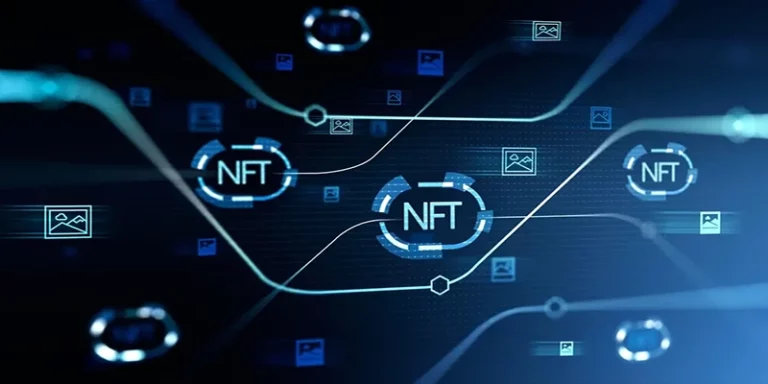What Is The Best Cryptocurrency Wallet? Wallet Comparison
If you want to buy cryptocurrency, you need to set up a crypto wallet first. What is the best crypto wallet for people who are just starting? In short, everyone will get a different answer.
But security should always be the top priority when choosing a Best Cryptocurrency Wallet, no matter the situation. This post explains how these security concerns relate to the type and where the wallet is kept.
Best Cryptocurrency Wallet
Custodial vs non-custodial wallets
As a new crypto holder, you’ll have first to choose whether to use a custodial or non-custodial wallet. Many people start with custodial wallets, but you can also use a non-custodial wallet if you want a different level of security.
Custodial wallets
Custodial crypto wallets are managed by a central authority, just like traditional bank accounts. For example, when you set up an account on a crypto exchange, that platform is in charge of your wallet.
In this case, the business has your private keys and is to keep your wallet funds safe. Your secret key is a unique alphanumeric password that acts like a PIN for a bank card. It lets you spend or send cryptocurrency out of your wallet.
Non-custodial wallets
In contrast to wallets that hold your private keys for you, non-custodial wallets give you complete control over your private keys. In other words, you are the only one with private keys, so you are the only one who can use the wallet.
This type of wallet can be safer if you have a lot of cryptos because it doesn’t involve a third-party custodian who could compromise account security.
Considerations
Some people think custodial wallets are less secure than non-custodial wallets, but they don’t need key management. If you choose a non-custodial wallet, on the other hand, you’ll have to think about the risks of managing your private keys. If you lose access to your non-custodial wallet, for example, you won’t be able to get your money back without the recovery or critical phrase.
A recovery phrase is a string of 12, 18, or 24 words chosen randomly and given to you only once when you set up your wallet. You’ll need to write this phrase down in the order it appears because the demand is essential and keeps it somewhere safe for future use. You can’t get your money back if you lose access to your cryptocurrency wallet and don’t have the key phrase.
You could lose a lot of money if you have a lot of cryptocurrencies. Custodial wallets, on the other hand, store your private keys. If you lose access to your funds, you may be able to get them back. Because of this, many people new to crypto feel more at ease using a custodial wallet.
The most popular custodial wallets are the ones that are kept on crypto exchange platforms because they make it easy to buy and sell digital assets. Whether you choose a wallet that holds your private keys or not, you should never give them to anyone else. With this key, anyone can get into your purse and take out cryptocurrency, sometimes without your knowledge.

Software wallets vs. hardware wallets
Once you’ve decided whether you want a wallet that holds your money or not, you can look at the features of each type. In general, wallets can be grouped into software and hardware.
Software wallets
Software wallets can be either “custodial” or “non-custodial,” and they can be desktop, mobile, web, or browser extension apps. There are a lot of software wallets out there, but here are some of the most popular ones:
- Browser-based wallets: Unlike extension wallets, these wallets are wholly built into their host browser. For example, the Brave crypto wallet is made right into the Brave browser so that it can be used on any device with the Brave browser.
As an entirely integrated solution, the Brave crypto wallet is less likely to have software flaws and already uses security features. Because of this, your crypto wallet is safer and works better on all devices. - Desktop wallets: The Exodus wallet is a non-custodial wallet that can be used on a desktop or as a mobile application. My Ether Wallet is another non-custodial wallet you can use on your computer or as an app on your phone.
It’s important to know that each wallet will only work with a certain number of tokens, which are cryptocurrencies. For instance, Exodus supports over 100 tokens across several blockchain networks, while MEW only supports ERC-20 tokens on the Ethereum network. - Mobile wallets: These are like desktop wallets on your phone. The only difference is that these crypto wallets are applications on your phone instead of your computer. MEW and Exodus are two examples of desktop wallets that can also be used as mobile apps.
Other platforms, like Trust Wallet and Aqua, can only be used on a mobile device. It’s significant to remember that mobile wallets can be either custodial or non-custodial, depending on your choice. - Web-based wallets: You can find these on exchange platforms like Gemini, Binance, and Coinbase, among others. Most of the time, the exchange platform holds the private keys for web wallets.
- Wallets for extensions: MetaMask is one of the most popular wallets for Ethereum tokens that can be added to a browser. But there are many others, like Phantom for the Solana blockchain, Binance Chain Wallet for the Binance Smart Chain (BSC), and Binance Chain (BC) networks.
These add-ons make it easier to work with decentralized applications (DApps) and protocols (Defi), like the Uniswap exchange.
Hardware wallets
Hardware wallets are portable devices that sync with your computer or phone through a USB or Bluetooth connection. They are similar to flash drives. It’s important to know that you hold the private keys for all hardware wallets. Even though hardware wallets must be connected to the internet during a transaction, private key transactions are signed offline.
Because of this, the private keys can’t be seen online. When a transaction is signed, it is sent to the blockchain to be confirmed. Hardware wallets don’t connect to the internet when they’re not being used. This is why they’re also called “cold wallets.” Because of this, even a computer or phone with malware can’t get to your money if it’s in a non-custodial hardware wallet.
What’s the Best Cryptocurrency Wallet for you?
As you can visit, there are numerous things to consider when choosing the best cryptocurrency wallet. For instance, exchange-based custodial wallets make it easier to buy crypto, but you have to give up your private keys. On the other hand, non-custodial hardware wallets are more secure, but they often make things less convenient.
But considering everything, we think browser-based wallets are the best way to store crypto. For example, the Brave crypto wallet works with the Brave browser in a way that most software wallets don’t. So, your wallet is less likely to be hacked or spoofed, and it uses security features like blocking ads or trackers.
The Brave crypto wallet also works on any device running the Brave browser. This makes for better interoperability. Lastly, unlike a wallet, the Brave crypto wallet can’t be lost, broken, or stolen. This maintains you from losing a lot of money.
The Best Cryptocurrency Wallet depends on your needs and comfort level, but the Brave cryptocurrency wallet gives you the best of both worlds. We think Brave is the best cryptocurrency wallet because it combines the ease of use of software wallets with the safety of hardware wallets.







